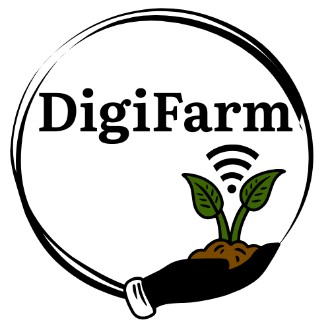|
|
|

The world is changing rapidly, and the agricultural sector must adapt to meet new challenges such as climate change, population growth, and the need for more sustainable production methods. Investing in an enabling environment, such as lifelong training in digital skills and advice, can empower farmers to advance their business practices and increase the environmental and financial sustainability of their operations. By investing in education and training, DigiFarm will equip farmers and other actors in the agricultural sector with the tools and knowledge they need to navigate these challenges and succeed in a rapidly changing world. In addition to the benefits for the agricultural sector, investing in educational scenarios and activities can also have broader societal benefits. For example, by supporting the adoption of sustainable farming practices, DigiFarm contributes to environmental protection, biodiversity conservation and supports rural communities’ in improving their health and well-being. The new Common Agricultural Policy (CAP) has introduced the Agricultural Knowledge and Innovation System (AKIS) instrument, which aims to enhance cooperation and knowledge-sharing amongstakeholders in the agricultural sector. AKIS includes the provision of training and support for farmers to help them adopt new technologies and practices. While various industries are swiftly embracing digitalization, the agricultural sector lags behind in the adoption of smart farming tools. Despite the availability of advanced digital tools that incorporate Artificial Intelligence (AI) techniques and combine heterogeneous data sources such as remote sensing and in-situ Internet of Things (IoT) sensors to provide highly detailed agricultural information, the adoption of precision agriculture and smart farming technologies has been limited in the agricultural sector. Adoption rates among farmers typically range from single to low double-digits. DigiFarm aims at closing the adoption gap by the upskilling of farmer advisors on new digital technologies, artificial intelligence applications in agriculture and remote sensing. Farm advisors play a critical role in agricultural innovation, because they can act as the mediator between scientists and farmers. Furthermore, they have the required time and interest in order to discover and understand new tools, embrace them and add them in the day-to-day workflow of them and farmers they support. In summary, to support the objectives of AKIS and the new CAP, the project aims to upskill agricultural advisors so that they have the knowledge and skills needed to provide high-quality, tailored advice leveraging innovative tools and technologies.


